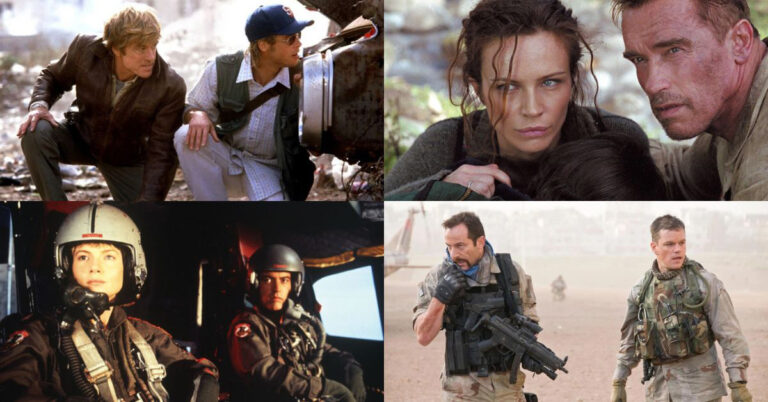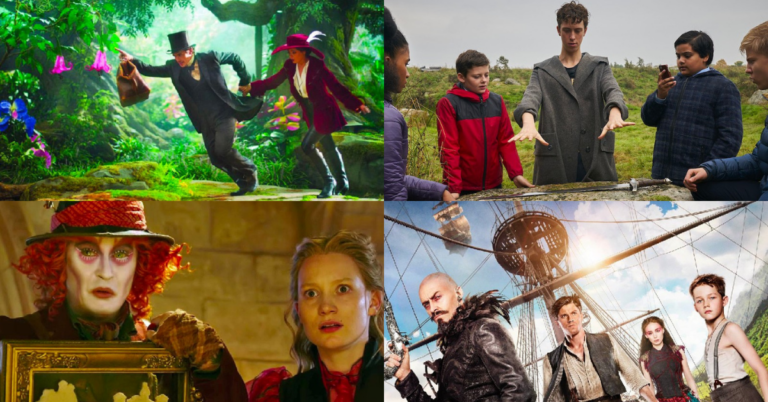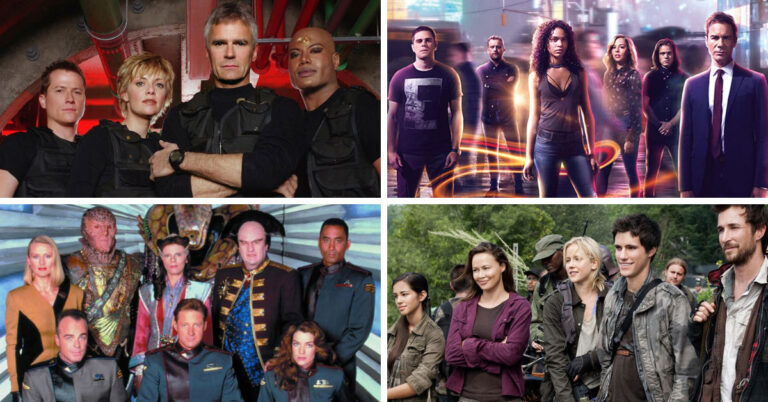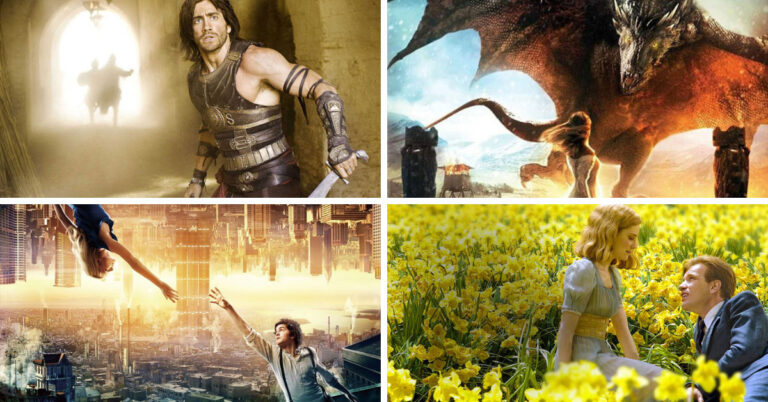100 Best European Movies You Need to Watch
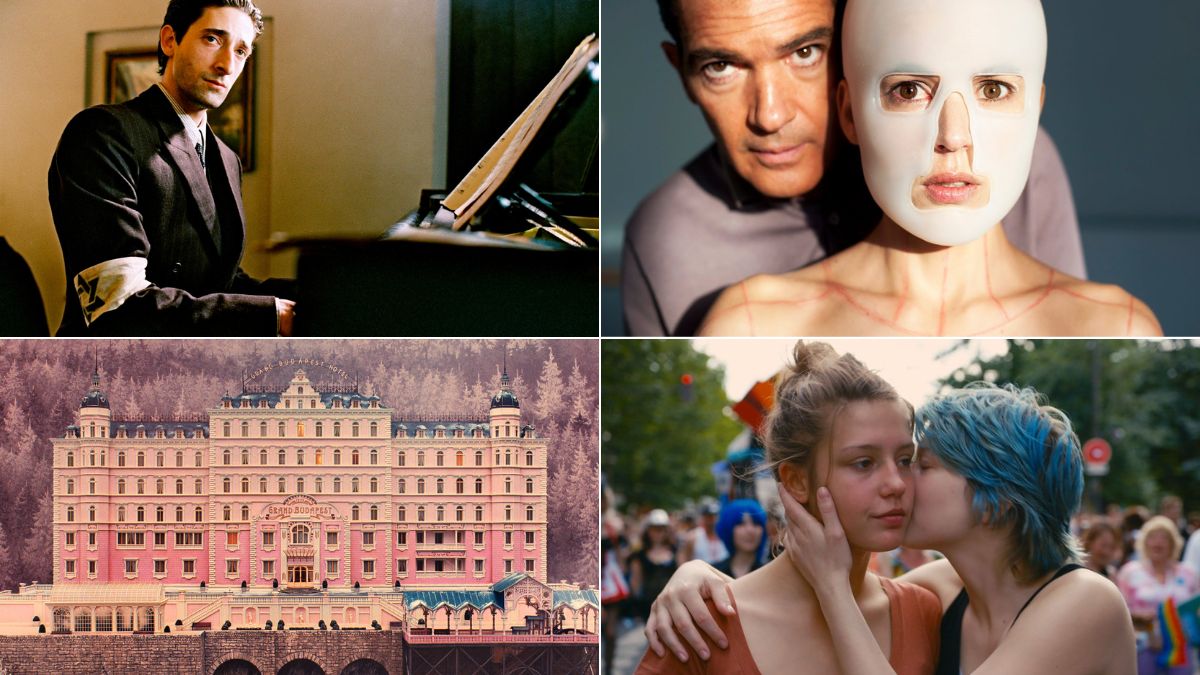
Europe has been a hub of cinematic excellence for decades, producing some of the most iconic and acclaimed movies in history. From classic films of the French New Wave to modern-day masterpieces from Scandinavia, European cinema continues to captivate audiences around the world with its unique storytelling, rich character development, and artistic expression.
Whether you’re a film buff or simply looking for something new to watch, exploring the world of European cinema is a must. In this article, we’ll take a look at some of the best European movies that you need to watch. From drama to comedy, from romance to horror, these films offer something for every taste and genre preference. So, sit back, grab some popcorn, and get ready to discover some of the most unforgettable cinematic experiences Europe has to offer.
Amélie (France, 2001)
Amélie is a whimsical romantic comedy about a shy waitress who decides to change the lives of those around her for the better. Through a series of playful and imaginative schemes, Amélie helps others find love, happiness, and fulfillment, all while grappling with her own feelings of loneliness and longing.
The Seventh Seal (Sweden, 1957)
The Seventh Seal is an existential masterpiece from the legendary Ingmar Bergman, in which a knight plays a game of chess with Death. As he tries to stave off his own demise, the knight grapples with the meaning of life, faith, and mortality.
Bicycle Thieves (Italy, 1948)
Bicycle Thieves is a neorealist drama about a poor man and his son who search for the father’s stolen bike, their only means of livelihood. As they navigate the streets of post-war Rome, they confront the harsh realities of poverty, desperation, and the struggle for survival.
Let the Right One In (Sweden, 2008)
Let the Right One In is a chilling and poignant horror-drama about a bullied boy who befriends a strange girl who turns out to be a vampire. As their relationship deepens, they navigate the complexities of love, friendship, and the darker side of human nature.
The Grand Budapest Hotel (UK/Germany, 2014)
The Grand Budapest Hotel is a whimsical and visually stunning comedy-drama about a legendary hotel concierge and his loyal lobby boy. As they embark on a madcap adventure across a war-torn Europe, they encounter eccentric characters, dangerous foes, and unexpected romance.
La Haine (France, 1995)
La Haine is a powerful and gritty drama about a day in the life of three friends from the impoverished suburbs of Paris. As they navigate the complexities of race, class, and police brutality, they confront the harsh realities of life in the margins of society.
The Lives of Others (Germany, 2006)
The Lives of Others is a gripping drama set in East Germany during the Cold War, following a Stasi agent tasked with spying on a playwright and his lover. As he becomes increasingly immersed in their lives, he begins to question his loyalty to the state and the moral implications of his job.
Pan’s Labyrinth (Spain, 2006)
Pan’s Labyrinth is a dark and fantastical fairy tale set against the backdrop of fascist Spain, in which a young girl discovers a secret world of mythical creatures. As she navigates this otherworldly realm and confronts the monstrous forces that threaten it, she must also confront the harsh realities of the war-torn world in which she lives.
The Artist (France, 2011)
The Artist is a charming and nostalgic black-and-white homage to silent cinema, following a fading Hollywood star and a rising young actress. As they navigate the transition from silent films to talkies, they confront the changing nature of fame, art, and the movie industry.
L’Atalante (France, 1934)
L’Atalante is a lyrical and dreamlike romance about a newlywed couple who sail on a barge down the Seine River. As they navigate the ups and downs of their relationship, they encounter a cast of colorful characters and navigate the beauty and mystery of the French countryside.
The Umbrellas of Cherbourg (France, 1964)
The Umbrellas of Cherbourg is a romantic musical about a young couple whose love is tested when the man is drafted to fight in the Algerian War. As they navigate the challenges of separation, they confront the harsh realities of war and the toll it takes on their relationship.
The 400 Blows (France, 1959)
The 400 Blows is a groundbreaking coming-of-age drama about a rebellious young boy growing up in Paris. As he navigates school, family, and the streets of Paris, he confronts the complexities of adolescence and the challenges of finding one’s place in the world.
Nosferatu (Germany, 1922)
Nosferatu is a silent horror classic loosely based on Bram Stoker’s Dracula, about a vampire who terrorizes a small town. As the vampire spreads his terror, a young man sets out to stop him and save his community from destruction.
Breathless (France, 1960)
Breathless is a seminal film of the French New Wave, following a young criminal and his American girlfriend as they evade the police and confront the realities of their lives and relationship.
The Girl with the Dragon Tattoo (Sweden, 2009)
The Girl with the Dragon Tattoo is a gripping and intense thriller about a journalist and a young computer hacker who team up to solve a decades-old mystery involving murder, family secrets, and corruption.
A Clockwork Orange (UK, 1971)
A Clockwork Orange is a controversial and dystopian masterpiece about a young delinquent who undergoes a radical and inhumane form of behavioral conditioning, raising profound questions about free will, morality, and the nature of evil.
The Third Man (UK, 1949)
The Third Man is a classic film noir set in postwar Vienna, following a writer who becomes embroiled in a dangerous conspiracy involving a mysterious and charismatic figure known as “the third man.”
The Wages of Fear (France/Italy, 1953)
The Wages of Fear is a tense and thrilling adventure about a group of men who undertake a dangerous mission to transport volatile explosives across treacherous terrain, confronting their own mortality and the limits of human courage.
Belle de Jour (France, 1967)
Belle de Jour is a provocative and surreal drama about a bourgeois housewife who takes a job at a brothel, exploring themes of desire, fantasy, and the dark underbelly of middle-class respectability.
The Counterfeiters (Austria, 2007)
The Counterfeiters is a tense and morally complex drama about a group of Jewish prisoners who are forced to use their skills as counterfeiters to help the Nazis in a plot to destabilize the Allied economy, raising profound questions about complicity, collaboration, and survival.
The Cabinet of Dr. Caligari (Germany, 1920)
The Cabinet of Dr. Caligari is a groundbreaking horror classic about a sinister hypnotist who uses a sleepwalker to commit a series of murders, exploring themes of madness, control, and the power of suggestion.
A Man Escaped (France, 1956)
A Man Escaped is a gripping and suspenseful drama about a French Resistance fighter who is imprisoned by the Nazis and sets out to escape, exploring themes of resilience, resourcefulness, and the human will to survive.
The Double (Russia, 2013)
The Double is a surreal and unsettling thriller about a timid office worker who is driven to madness by the appearance of his doppelganger, exploring themes of identity, conformity, and the struggle to assert oneself in a world of conformity.
Jean de Florette (France, 1986)
Jean de Florette is a tragic and poignant drama set in rural Provence, following a man who moves with his family to a farm in the hopes of starting a new life, only to encounter hostility and treachery from his neighbors, exploring themes of greed, ambition, and the harsh realities of life in the countryside.
Wild Strawberries (Sweden, 1957)
Wild Strawberries is a reflective and introspective drama about an aging professor who embarks on a road trip to receive an honorary degree, grappling with his past, his regrets, and his mortality along the way.
Persona (Sweden, 1966)
Persona is a haunting and enigmatic drama about a nurse who becomes deeply enmeshed in the life of her patient, a young actress who has suddenly stopped speaking, exploring themes of identity, performance, and the blurred lines between reality and illusion.
Run Lola Run (Germany, 1998)
Run Lola Run is a kinetic and propulsive thriller about a young woman who races against time and fate to save her boyfriend’s life, exploring themes of chance, choice, and the unpredictable nature of life.
Orpheus (France, 1950)
Orpheus is a poetic and visually stunning retelling of the Greek myth of Orpheus, in which a poet is granted entry to the underworld to retrieve his lost love, exploring themes of love, death, and the transcendent power of art.
The Death of Mr. Lazarescu (Romania, 2005)
The Death of Mr. Lazarescu is a raw and unflinching drama about a man who is rushed to the hospital and becomes a victim of the corrupt and inadequate healthcare system in modern-day Romania.
The Celebration (Denmark, 1998)
The Celebration is a biting and satirical drama about a wealthy family who gather to celebrate the patriarch’s 60th birthday, only for long-buried secrets and resentments to come to the surface and threaten to destroy their facade of happiness.
Ivan’s Childhood (Russia, 1962)
Ivan’s Childhood is a haunting and poetic war drama about a young boy who becomes a spy for the Soviet army during World War II, grappling with the horrors of war and the loss of his childhood innocence.
Metropolis (Germany, 1927)
Metropolis is a groundbreaking science fiction classic set in a dystopian future in which the working class toils underground while the ruling elite enjoy the fruits of their labor above ground, exploring themes of class, power, and revolution.
La Strada (Italy, 1954)
La Strada is a poignant and melancholic drama about a young woman who is sold by her mother to a brutish traveling performer, exploring themes of love, freedom, and the human spirit in the face of adversity.
The Spirit of the Beehive (Spain, 1973)
The Spirit of the Beehive is a haunting and dreamlike drama set in the aftermath of the Spanish Civil War, following a young girl who becomes obsessed with the classic horror film Frankenstein and grapples with the dark and complex emotions of her world.
The Grand Illusion (France, 1937)
The Grand Illusion is a groundbreaking and powerful anti-war film about a group of French soldiers in a German prison camp during World War I, exploring themes of class, nationalism, and the futility of war.
Caché (France, 2005)
Caché is a tense and enigmatic thriller about a successful Parisian couple who begin receiving anonymous videotapes of their daily lives, raising questions about guilt, responsibility, and the ghosts of the past.
The Double Life of Veronique (France/Poland, 1991)
The Double Life of Veronique is a surreal and enigmatic drama about two women who share a mysterious connection. As they navigate their parallel lives, they confront the strange and beautiful mysteries of the world and their place in it.
Rashomon (Japan, 1950)
Rashomon is a landmark film of Japanese cinema, telling the story of a murder through multiple perspectives, each offering a different and contradictory version of events, exploring themes of truth, perception, and the subjective nature of reality.
Black Cat, White Cat (Serbia, 1998)
Black Cat, White Cat is a raucous and colorful comedy about two rival families in a Romani community who scheme, cheat, and connive their way through life, exploring themes of family, love, and the unpredictable nature of fate.
My Life as a Dog (Sweden, 1985)
My Life as a Dog is a poignant and bittersweet drama about a young boy who is sent to live with relatives in rural Sweden after his mother falls ill, grappling with the complexities of growing up and the pain and loss of adolescence.
Three Colors Trilogy (Poland/France, 1993-1994)
The Three Colors Trilogy is a masterful and poetic exploration of the themes of liberty, equality, and fraternity, each film examining these ideals through the lens of a different color and a different story.
The Conformist (Italy, 1970)
The Conformist is a sumptuous and unsettling drama about a young man who becomes a fascist spy in Mussolini’s Italy, exploring themes of conformity, power, and the dangers of authoritarianism.
The Skin I Live In (Spain, 2011)
The Skin I Live In is a dark and twisted thriller about a brilliant plastic surgeon who becomes obsessed with creating a new kind of skin, leading him down a dangerous path of experimentation and manipulation.
A Prophet (France, 2009)
A Prophet is a powerful and gritty prison drama about a young man who rises through the ranks of a Corsican crime syndicate while serving time in prison, confronting the harsh realities of the criminal underworld and the struggle for power and survival.
Europa (Denmark, 1991)
Europa is a surreal and provocative drama about an American who travels to Germany after World War II to work for a train company, becoming embroiled in a sinister and bizarre conspiracy involving the train’s conductor and the emerging forces of fascism.
Ida (Poland, 2013)
Ida is a haunting and powerful drama about a young woman who is about to take her vows as a nun, but before she does so, she discovers a dark family secret that shakes her to the core, exploring themes of identity, guilt, and the search for truth.
Talk to Her (Spain, 2002)
Talk to Her is a mesmerizing and emotional drama about two men who become friends while caring for two comatose women, exploring themes of love, loneliness, and the fragility of human connection.
The Great Beauty (Italy, 2013)
The Great Beauty is a lyrical and sumptuous drama about an aging writer who reflects on his life and the beauty and decay of Rome, exploring themes of art, creativity, and the search for meaning and connection.
The White Sheik (Italy, 1952)
The White Sheik is a charming and whimsical comedy about a newlywed couple who travel to Rome, where the husband becomes obsessed with meeting the star of his favorite comic book, exploring themes of love, fantasy, and the sometimes absurd nature of our desires.
The Lobster (Ireland, 2015)
The Lobster is a dark and surreal satire about a dystopian society in which single people are given 45 days to find a mate, or else they will be turned into an animal of their choosing, exploring themes of conformity, identity, and the nature of love and relationships.
The Square (Sweden, 2017)
The Square is a biting and provocative satire about the art world, following a museum curator as he navigates a series of increasingly absurd and troubling situations, exploring themes of social norms, political correctness, and the responsibility of the artist in society.
Amour (France, 2012)
Amour is a powerful and heartbreaking drama about an elderly couple who must confront the realities of aging and illness, grappling with the pain, loss, and love that come with the end of life.
Good Bye, Lenin! (Germany, 2003)
Good Bye, Lenin! is a poignant and nostalgic comedy-drama about a young man who tries to shield his mother, who has just awoken from a coma, from the political changes that have occurred in East Germany while she was unconscious.
The Intouchables (France, 2011)
The Intouchables is a heartwarming and funny drama about a wealthy quadriplegic man who hires a young man from the projects as his caretaker, leading to a transformative friendship that transcends boundaries of class and race.
Toni Erdmann (Germany, 2016)
Toni Erdmann is a quirky and poignant comedy-drama about a father who tries to reconnect with his estranged daughter by posing as a bizarre alter-ego, exploring themes of family, identity, and the absurdities of modern life.
Blue Is the Warmest Color (France, 2013)
Blue Is the Warmest Color is a raw and honest drama about a young woman who discovers her sexuality and falls in love with a blue-haired artist, exploring themes of identity.
The Hunt (Denmark, 2012)
The Hunt is a tense and harrowing drama about a man who is falsely accused of molesting a child in his small Danish town, and the devastating effects it has on his life and the community around him.
The Death of Stalin (UK, 2017)
The Death of Stalin is a dark and hilarious political satire about the power struggle that ensued after the death of the Soviet dictator Joseph Stalin in 1953.
The White Ribbon (Germany, 2009)
The White Ribbon is a chilling and masterful drama set in a small German village on the eve of World War I, exploring themes of power, violence, and the origins of evil.
La Dolce Vita (Italy, 1960)
La Dolce Vita is a seductive and provocative drama about a journalist who searches for meaning and pleasure in the decadent and hedonistic world of Rome’s high society, grappling with the emptiness and disillusionment of modern life.
The Discreet Charm of the Bourgeoisie (France/Spain, 1972)
The Discreet Charm of the Bourgeoisie is a surreal and biting satire about a group of wealthy and privileged friends who attempt to have a dinner party, only to be thwarted by a series of absurd and bizarre obstacles.
Pina (Germany, 2011)
Pina is a mesmerizing and innovative documentary about the legendary choreographer Pina Bausch, exploring her life and work through a series of stunning and immersive dance performances.
The Passion of Joan of Arc (France, 1928)
The Passion of Joan of Arc is a powerful and deeply emotional silent film about the trial and execution of the French martyr, exploring themes of faith, persecution, and the courage of conviction.
The Turin Horse (Hungary, 2011)
The Turin Horse is a mesmerizing and philosophical drama about a man, his daughter, and their horse living in a small village in rural Hungary, grappling with the slow erosion of time and the weight of existence.
Phoenix (Germany, 2014)
Phoenix is a haunting and emotionally charged drama set in post-World War II Berlin, following a Jewish concentration camp survivor who undergoes facial reconstruction surgery to find her husband, grappling with the horrors of the past and the pain of personal identity.
Ashes and Diamonds (Poland, 1958)
Ashes and Diamonds is a powerful and tragic drama set during the last days of World War II in Poland, exploring themes of war, power, and the complexities of human nature.
Victoria (Germany, 2015)
Victoria is a thrilling and innovative drama about a young Spanish woman who meets a group of men in a Berlin nightclub and becomes involved in a dangerous heist, all in a single continuous take.
I, Daniel Blake (UK, 2016)
I, Daniel Blake is a powerful and moving drama about a middle-aged carpenter who struggles to navigate the bureaucracy of the UK welfare system, exploring themes of social justice, poverty, and the dignity of the human spirit.
The Wind that Shakes the Barley (Ireland, 2006)
The Wind that Shakes the Barley is a poignant and powerful drama about two brothers who join the Irish Republican Army during the War of Independence, grappling with the complexities of violence, freedom, and the struggle for independence.
The Wages of Fear (France, 1953)
The Wages of Fear is a tense and thrilling drama about four men who are hired to transport a truckload of highly explosive nitroglycerine across the treacherous terrain of South America, exploring themes of danger, fear, and the human will to survive.
Mustang (Turkey/France, 2015)
Mustang is a powerful and feminist drama about five sisters who rebel against the strict and patriarchal traditions of their Turkish village, exploring themes of freedom, sisterhood, and the fight for autonomy.
Wild Strawberries (Sweden, 1957)
Wild Strawberries is a poignant and reflective drama about an aging professor who takes a journey into his past and confronts his mortality, grappling with the meaning of life and the inevitability of death.
The Grand Budapest Hotel (Germany, 2014)
The Grand Budapest Hotel is a whimsical and stylish comedy-drama about the eccentric staff and guests of a luxurious hotel in the fictional country of Zubrowka, exploring themes of friendship, loyalty, and the passing of time.
The Orphanage (Spain, 2007)
The Orphanage is a haunting and suspenseful horror film about a woman who returns to the orphanage where she grew up to open a home for disabled children, only to uncover a dark and terrifying secret.
Europa ’51 (Italy, 1952)
Europa ’51 is a powerful and introspective drama about a wealthy woman who becomes disillusioned with her life of privilege and decides to devote herself to helping the poor and marginalized, grappling with questions of social justice, class, and personal responsibility.
The Vanishing (Netherlands, 1988)
The Vanishing is a haunting and suspenseful thriller about a man who disappears while on a vacation with his girlfriend, and the obsessive search for the truth that consumes her for years to come.
Goodbye Lenin! (Germany, 2003)
Goodbye Lenin! is a heartfelt and comedic drama about a young man who tries to shield his mother, a devoted socialist, from the news of the fall of the Berlin Wall and the changes that come with it.
Dogtooth (Greece, 2009)
Dogtooth is a disturbing and provocative drama about a family who keeps their children isolated from the outside world and creates their own bizarre and twisted reality, exploring themes of control, power, and the nature of truth.
The Counterfeiters (Austria/Germany, 2007)
The Counterfeiters is a tense and morally complex drama about a group of Jewish prisoners who are forced to work in a counterfeiting operation by the Nazis, grappling with questions of survival, resistance, and morality.
The Young Pope (Italy/France/Spain, 2016)
The Young Pope is a stylish and provocative television series about a young and ambitious American pope who shakes up the Vatican and the Catholic Church with his unorthodox beliefs and behaviors.
Cinema Paradiso (Italy, 1988)
Cinema Paradiso is a heartwarming and nostalgic drama about a famous Italian film director who reflects on his childhood and the transformative power of cinema, exploring themes of love, loss, and the magic of movies.
Underground (Serbia/France/Germany/Hungary, 1995)
Underground is a sprawling and surreal drama about a group of Yugoslavian partisans who hide in a basement during World War II, only to emerge years later to a changed and confusing world, grappling with themes of war, politics, and identity.
The Ascent (Russia, 1977)
The Ascent is a powerful and devastating drama set in Nazi-occupied Belarus during World War II, following two Soviet partisans who are captured and tortured by the Germans, exploring themes of heroism, sacrifice, and the horrors of war.
8½ (Italy, 1963)
8½ is a surreal and introspective drama about a filmmaker who struggles to complete his latest project, and retreats into a world of fantasy and memory, exploring themes of creativity, identity, and the creative process.
Once Upon a Time in the West (Italy/USA, 1968)
Once Upon a Time in the West is a classic and epic Western about a mysterious stranger who arrives in a small town, and becomes embroiled in a battle for control of the local railroad, grappling with themes of justice, revenge, and the American West.
Come and See (Soviet Union, 1985)
Come and See is a harrowing and powerful war drama about a young Belarusian boy who joins the Soviet Partisans during World War II, and witnesses the horrors of the Nazi occupation, exploring themes of innocence, trauma, and resistance.
Nights of Cabiria (Italy, 1957)
Nights of Cabiria is a poignant and bittersweet drama about a Rome prostitute who searches for love and redemption in a world of poverty and desperation, exploring themes of hope, resilience, and the human spirit.
Volver (Spain, 2006)
Volver is a warm and humorous drama about a Spanish woman who returns to her hometown to care for her dying aunt, and confronts her past and her relationships with her family and friends, exploring themes of family, community, and the power of female bonds.
Kanal (Poland, 1957)
Kanal is a tense and brutal war drama about a group of Polish resistance fighters who are forced to escape through the sewers during the Warsaw Uprising of 1944, grappling with themes of survival, sacrifice, and the horrors of war.
The Bridge (Germany, 1959)
The Bridge is a heartbreaking and powerful drama about a group of German teenagers who are drafted into the army during the final days of World War II, and are ordered to defend a bridge against the advancing Allied forces, exploring themes of youth, patriotism, and the futility of war.
Breaking the Waves (Denmark/Sweden/France/Norway, 1996)
Breaking the Waves is a provocative and emotional drama about a Scottish woman who marries a Norwegian oil rig worker, and becomes embroiled in a series of sexual and religious taboos, exploring themes of love, faith, and self-sacrifice.
Elevator to the Gallows (France, 1958)
Elevator to the Gallows is a stylish and suspenseful crime thriller about a man who murders his boss and becomes trapped in an elevator, while his lover tries to exonerate him, exploring themes of love and betrayal.
The Trial (France/Italy/West Germany, 1962)
The Trial is a surreal and haunting drama based on the novel by Franz Kafka, about a man who is arrested and put on trial for an unknown crime, navigating a bizarre and labyrinthine legal system, exploring themes of power, control, and the absurdity of bureaucracy.
The Pianist (France/Germany/UK/Poland, 2002)
The Pianist is a powerful and moving drama based on the true story of a Polish Jewish pianist who survives the Holocaust by hiding and relying on the kindness of strangers, exploring themes of survival, resilience, and the human spirit.
The Secret Life of Words (Spain/Ireland, 2005)
The Secret Life of Words is a poignant and introspective drama about a woman who travels to an oil rig to care for a burn victim, and forms a deep and unexpected connection with him, exploring themes of trauma, healing, and the power of human connection.



